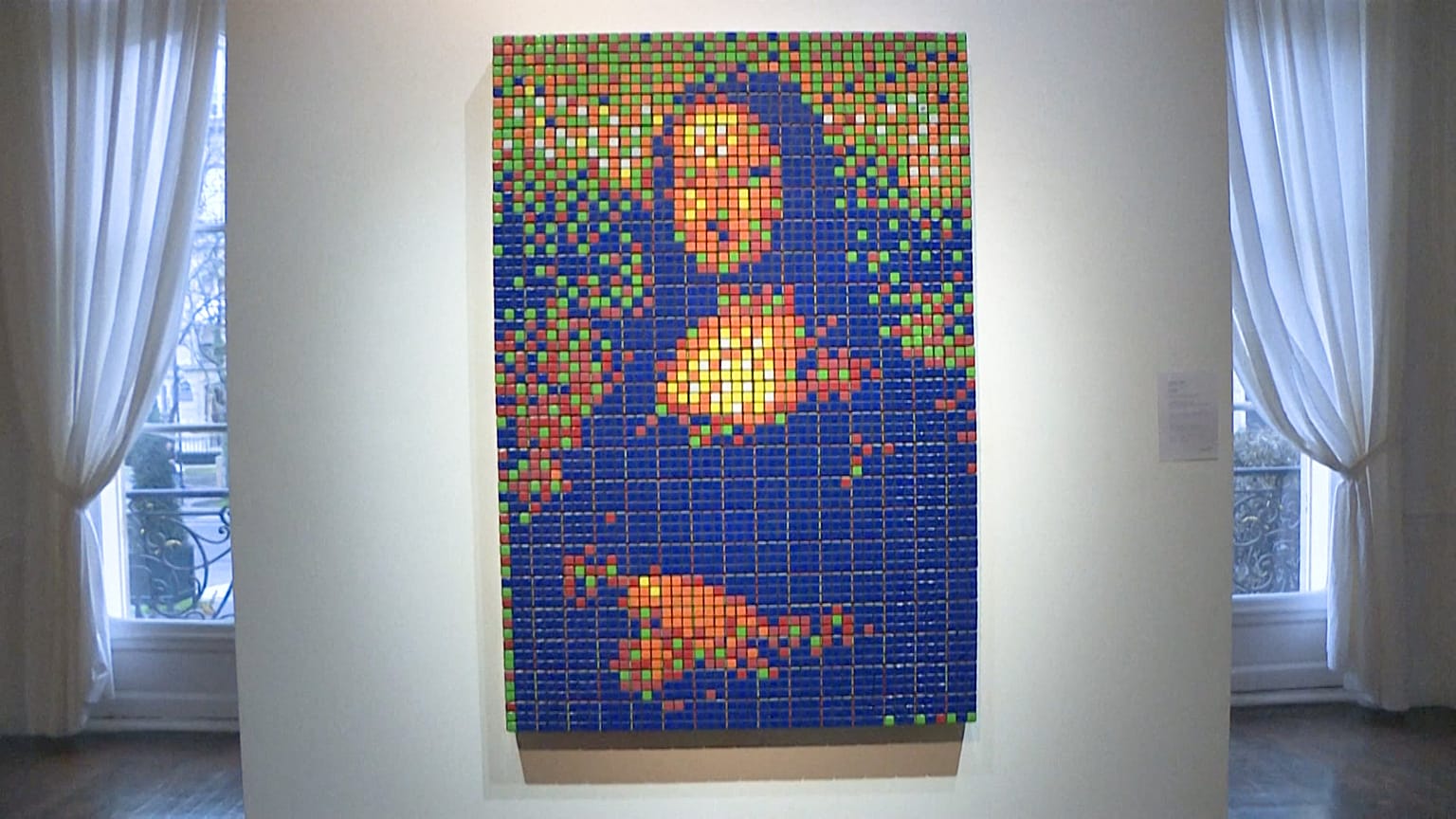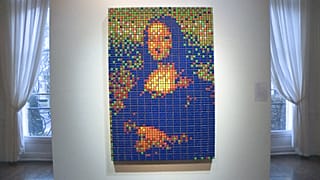A street art Rubik's Cube version of the "Mona Lisa" is expected to sell for up to 150,000 euros ($166,000) when it goes under the hammer in Paris this month.
Made from 330 Rubik's Cubes by the French artist Invader -- famous for his ceramic Space Invaders figures inspired by the vintage pixelated video game -- is called "Rubik Mona Lisa".
It is the first of a series of works in which the artist has recreated some of the great paintings of art history in Rubik's Cubes.
Invader, whose real name is Franck Slama, claimed that they are the founding creations of a new art movement called "Rubikcubism".
He has glued Space Invaders works to walls in more than 33 countries, and even inspired smartphone applications for fans trying to track them down.
"Rubik Mona Lisa" will go on sale at Artcurial on the Champs-Elysees in Paris on February 23 as a part of auction featuring some of the biggest names in street art.
Invader made "Rubik Mona Lisa" in 2005 and has since gone on to recreate Edouard Manet's Impressionist masterpiece "Le Dejeuner sur l’Herbe" ("Luncheon on the Grass") as well as Gustave Courbet's ever-controversial "The Origin of the World" in Rubik's Cubes.
The cube, a cult children's puzzle in the 1980s, was invented by the Hungarian sculptor Emo Rubik as a teaching tool to explain three-dimensional forms to his architecture students.
A blockbuster Leonardo da Vinci show at the Louvre museum in Paris, which holds the "Mona Lisa", finishes at the end of this month.

























































